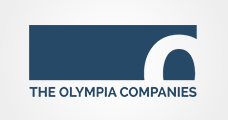The Olympia Companies Reshapes Revenue Management Success Across Diverse Property Portfolio with G3 RMS
Client

Hotel Type
Enterprise/Chain/Group
Region
Americas
Challenges
- Time-consuming manual revenue management practices
- Risk of human error in rate adjustments and inventory management
- Limitations in ability to dynamically set optimal pricing strategies
Solution
- G3 RMS
Results
- Standardized daily reporting across brands
- 10% ADR growth in year after implementing G3 RMS
- Improved inventory management
The Story
Olympia Hospitality stands as a dynamic force in the realm of hotel management and ownership. Olympia oversees a thriving portfolio of hotel properties serving university markets. At the helm of their revenue strategy stands Lori McNaught, Vice President of Revenue Management. A seasoned professional with over two decades of experience in the field and seven years dedicated to Olympia, Lori epitomizes the company’s commitment to excellence and innovation in driving revenue strategies forward. With a clear mandate to drive revenue performance improvements across Olympia’s portfolio, she turned to IDeaS G3 RMS for help in achieving their revenue growth goals.
Manual practices present revenue management opportunities
The quest for improved operational efficiency was paramount in Olympia’s decision to adopt an automated revenue system. The intricacies of rate adjustments, particularly when overseeing hotels with diverse room and product types, underscored the pressing need for streamlined processes. Consider the arduous task of manually altering rates—a single adjustment for a day’s pricing can consume valuable time, a significant investment when managing a portfolio with several properties. Every minute spent on manual rate changes detracts from strategic decision-making and operational agility. The manual process also introduces increased risk of human error into rate adjustments and inventory management.
For example, manual management of inventory controls to maintain straight-line availability proved time-consuming for both revenue managers and front office staff. This led to overbooking incidents and upgrade errors, as well-intentioned staff sometimes upgraded guests without realizing the unavailability of the upgraded room.
Failing to effectively manage straight-line availability can have a significant business impact, including missed opportunities for optimal sell-out efficiency. This stems from issues leading to inventory gaps, incorrect booking amounts, and inaccurate forecasting. “If you fail to optimize all facets of supply and demand, numerous opportunities for revenue generation may go unrealized,” shares McNaught.
“Inn on Boltwood is on pace for a remarkable $21 increase in ADR, constituting a substantial 10% growth compared to the prior year.”
Automated revenue management drives operational improvements
G3 RMS is Olympia’s go-to system for several compelling reasons, the first being the ease of training. With multiple brands under their portfolio, Olympia can seamlessly transition revenue managers between properties as they are already proficient in utilizing the system.
As Olympia aims to standardize daily reporting, the advantage of G3 RMS lies in the uniformity of reporting across brands. This eliminates the need for custom reports for each brand, streamlining operations and enhancing efficiencies by leveraging the same RMS platform.
Another crucial aspect of G3 RMS is its automated decision upload feature, which eliminates the need for manual intervention in accepting and publishing rates daily. Given the time constraints, manually reviewing and making decisions for each day is impractical. G3 RMS performs this task multiple times daily, ensuring timeliness and accuracy in rate adjustments.
Another one of the key advantages for Olympia is G3 RMS’ ability to optimize rates by room type, rather than applying uniform pricing differentials. This approach unlocks revenue potential by tailoring pricing strategies to the unique characteristics of each room category, thus maximizing profitability and market responsiveness.
“Many revenue management systems merely offer the convenience of clicking a button to transmit data, but that’s not really the purpose of a true revenue management system,” says McNaught.
Reaching new revenue heights
G3 RMS empowers Olympia to explore new pricing horizons, pushing the boundaries of what was once deemed possible. Initially, the transition to G3 RMS evoked a sense of discomfort, as rates may have exceeded conventional expectations. However, those worries were quickly put to rest as RMS-enabled advanced pricing strategies surpassed Olympia’s projections, with results consistently exceeding revenue targets.
As McNaught observed, “Sometimes you don’t know what you can get until you try, and we’ve found we’ve been able to push and make a lot more money than if we had just one person controlling it.”
For instance, when G3 RMS was implemented at Inn on Boltwood, they uncovered previously unrecognized demand for standard room types compared to upgrades. Previous pricing strategies revolved around selling standard rooms until they were depleted, then pricing remaining room types at higher rates, often resulting in unsold inventory. However, with G3 RMS, Olympia gained insights into demand dynamics, enabling them to optimize standard room rates while strategically offering upgrades to capitalize on guest preferences and willingness to pay. This approach not only maximized revenue through improved room inventory management, but also enhanced guest satisfaction by offering tailored accommodation options.